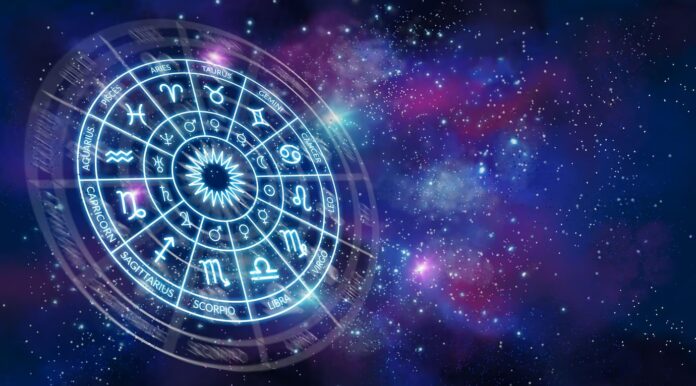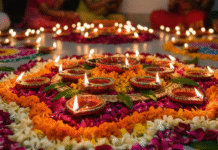
“Astrology appears in many forms—whether through personal entertainment, birth charts, magazine horoscopes, or planetary predictions. It continues to evoke curiosity, devotion, and skepticism in equal measure.” that continues to evoke almost equal responses of curiosity, devotion, or skepticism. But at the depth of it lies a question that is polarizing—the question of whether astrology can be divine guidance or mere superstition.
This article will expose the nature of astrology, its authenticity against scientific opposition, the mystical significance, and the influence it has in real life, thereby helping you decide where it actually stands. Now, let’s decipher it further. Decode the stars!
🌌 What is Astrology?
Astrology is an ancient science that studies the positions of celestial bodies that mainly include planets and stars on their influence on the life of humans in all possible ways. Civilizations that founded astrology include Mesopotamia, Egypt, and India. It was once an armory for the royal courts and philosophers. The modern-day usage of astrology involves daily horoscopes, marriage decisions, career guidance, and also healthcare (medical astrology).
The several major divisions in astrology are:
| Type of Astrology | Description |
| Vedic (Indian) Astrology | The sidereal zodiac includes concepts of karma, dharma, and planetary periods (dashas). |
| Western Astrology | Uses the tropical zodiac; popular for sun signs and psychological insight. |
| Chinese Astrology | Based on lunar years and 12-year animal cycles; applicable in feng shui and life planning. |
| Electional Astrology | Choosing auspicious hours for important matters such as weddings, setting up businesses, etc. |
🛕 Astrology as Divine Guidance: The Spiritual Aspect
Then, for millions, astrology is divinely not mere entertainment but the heavenly compass by which they synchronize their deeds with the timing of the cosmos. Here’s what believers hold as their holy claims:
- Cosmic Order & Karma
According to Vedic astrology, planets serve as agents for karma. Mahadasha opens up one Karmic fruit of the past actions or karma, whereas synchronizing with these energies is believing in being in syzygy with divine will. - Decision-Making Guidance
Astrology can guide individuals in key life decisions, interviews with deities concerning careers, marriage, health, or spiritual development. Many believe that their destiny is communicated through the stars, almost like celestial messengers. - Astrology in Religious Scriptures
Such texts in Hinduism encompass the Bṛhat Parāśara Horā Śāstra and the Jataka Parijata—two sacred scriptures that see astrology as Jyotish Shastra or sacred science in which astrology is one of the six Vedangas or limbs of the Vedas.
🔬 Astrology as Superstitions: The Scientific Contradiction
The arguments against astrology continue even among critical circles of believers. Here are some of the points:
- Absence of Empirical Evidence
Except for a few empirical studies, planetary positions have not shown statistically significant or reliable repeats with respect to personality or events in people’s lives. The famous double-blind Carlson experiment in 1985 disproved astrology’s accuracy in prediction. - Effects barnum
“Barnum Effect: Astrological predictions often use vague statements that people personalize as uniquely applicable”. This psychological bias is to blame for why horoscopes feel “accurate” to many. - Physics & Astronomy Confrontation
From an astronomical point, the gravitational pull even from very distant planets is almost negligible. The precession of the equinoxes has displaced the zodiac signs, thereby rendering the traditional sun sign dates obsolete astronomically.
| Scientific Evaluation | Astrological Claim | Verdict |
| No causal mechanism found | Planets affect personality | Debunked |
| Controlled experiments | Horoscopes match life events | Inconclusive |
| Precession ignored | Sun signs are fixed | Astronomically incorrect |
🔍 Astrology vs. Science: The Comparison
| Feature | Astrology | Science |
| Basis | Age-old scriptures, beliefs, and traditions | Empirical data and repeatability |
| Testability | Unverifiable or anecdotal mostly | Subjected to rigorous peer review |
| Comfort Vis-a-vis Emotion | Offers promise, direction, and validation | Concerned with facts and logic |
| Dubiety | Subjective and variable | Measurable and precise |
| Cultural Importance | Deeply rooted in Eastern societies | Reducing influence over daily life |
📈 Why is Astrology Still So Popular?
“Skeptical that, despite its surge in popularity during the digital era”, astrology is still questioned for the following:
- Individual Emotional Reassurance
Most people would seek out astrology in times of uncertainty; just listening to the forecasts or compatibility readings can often help ease anxiety, especially during global crises or major life changes. - Technologies that Personalize
Hyper-personalized astrology by entering one’s birth data through Co-Star, The Pattern, and Sanctuary are promising new applications. Astrology has gone digital, data-rich, and millennial-friendly. - Cultural & Social Acceptance
In countries like India, astrology holds importance in marriages, elections, investments, and even celebrities and politicians who consult astrologers.
Pros: emotional support and self-awareness.
Cons: no scientific credibility; vague, and generalized.
Deep cultural roots. Misused for fear-based decisions. Personalized insights. Astronomical inaccuracies.
🔎 FAQ: Astrology Debunked or Divine?
Q. Is astrology scientifically proven?
Most studies by scientists have stated astrology to be inconsistent and unreliable.
Q. Can astrology still be useful?
Yes, as a self-reflection tool or spiritual practice, it can be beneficial.
Q. Do the religious texts approve of astrology?
Yes, in Hinduism and other ancient systems, astrology is seen as divinely inspired.
🚀 Final Thought:
For a world that often feels chaotic, astrology provides a poetic narrative, or cosmic choreography, in which your life has purpose and timing. For some, then, it serves as divine guidance; for others, it is just superstition. But for all, it speaks to a deep human desire—to know ourselves and our place in the universe. What, then, do the stars say about you today? The answer may depend not on the heavens, but on the lens through which you look.






